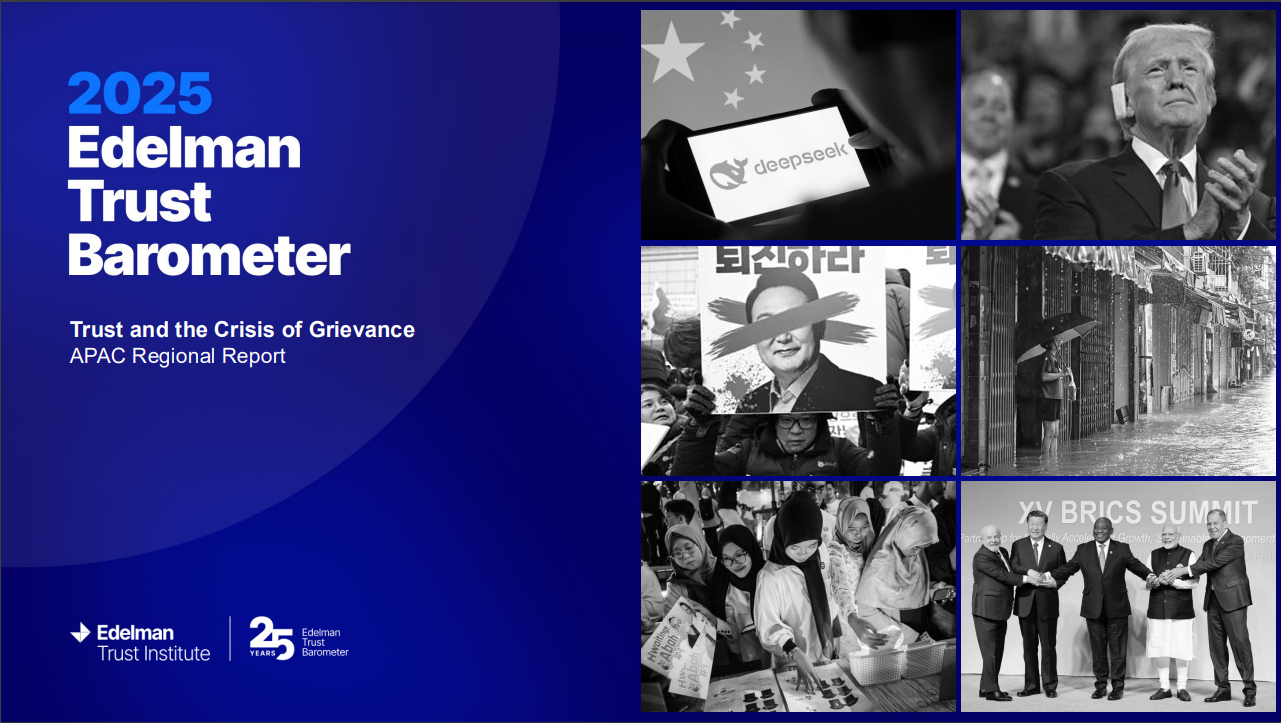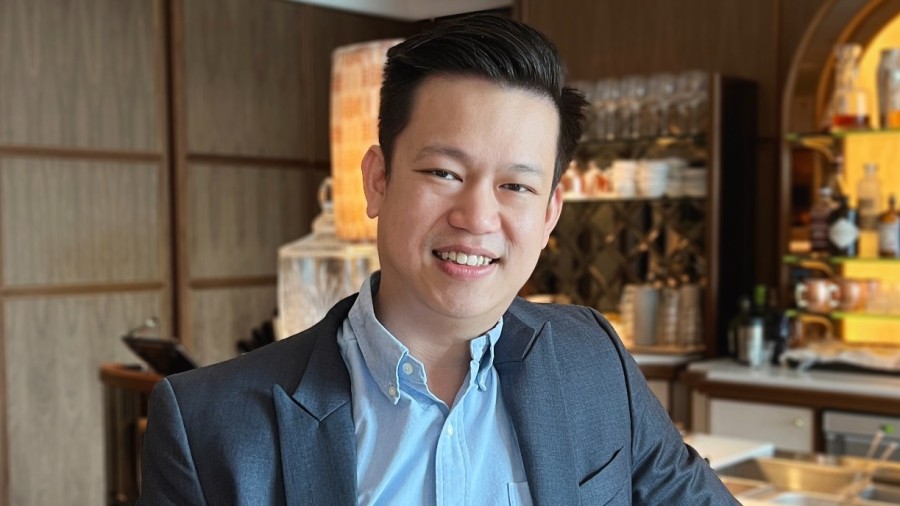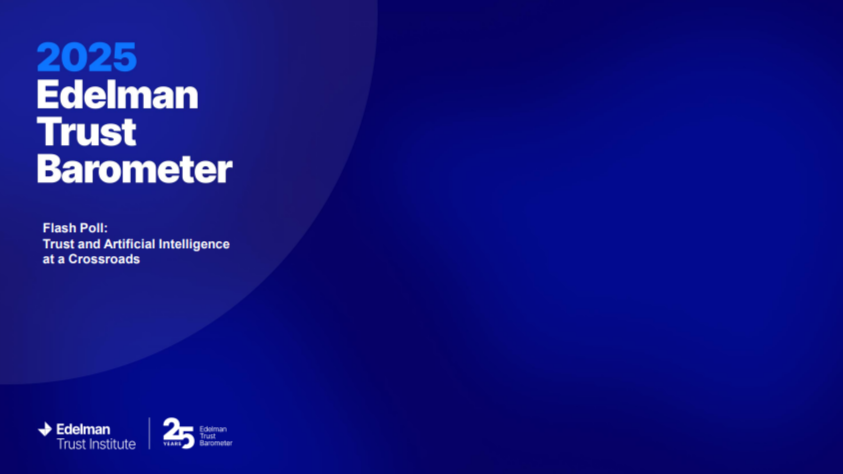Regional responses featured Australia, Mainland China, Japan, South Korea, Malaysia, Singapore, Indonesia, and India.
Overall, the Barometer highlighted a sense of grievance towards government, business, and the rich. Globally, 61 per cent have a moderate or high sense of grievance, marked by a belief that the system unjustly favours the rich and that the government and business serve narrow interests.
The report suggests that this grievance can erode trust. Respondents with a high sense of grievance distrust any of the four institutions (business, government, media, and NGOs), business leaders, nor artificial intelligence.
The bottom income quartile also had a lower Trust Index (trust in the four institutions). In APAC, low-income respondents have had consistently lower trust than their high-income counterparts since 2012. In 2025, low-income respondents averaged 55 per cent trust as compared to the 67 per cent of their high-income counterparts. The greatest income-based trust inequality was observed in Thailand (24-point difference) and Indonesia (17 points) - the global discrepancy is at 12 points.
Business remained the most trusted institution, especially in APAC. Media is the least trusted, with a lowered trust in all sources for general news and information - search engines, traditional media, owned media, and social media.
But for business, this higher trust combined with widespread grievance puts pressure on this sector to do more to provide good job opportunities and retraining, as well as address climate change, affordability, misinformation, and discrimination.
Respondents, especially in APAC, also believe that CEOs can address societal issues if they could have a major impact or improve business performance, as well as if their business contributed to the problem or the issue harms their stakeholders.
Yet, the Trust Barometer concludes that this responsibility is shared across the board - all institutions work to build trust and rebuild optimism to address grievances. When trust increases, optimism can overpower grievances.
Key regional findings
- Compared to the 56 per cent globally, the APAC Trust Index averaged 61 per cent.
- Six of the 10 most trusting markets globally are APAC-based, with Mainland China (77 per cent), Indonesia (76), and India (75) at the top.
- Japan (37) and South Korea (41) ranked last globally.
- Business remained the most trusted institution (65 per cent) in APAC, with Mainland China and India at 81 per cent each, followed by Indonesia (80 per cent).
- Overall, APAC markets showed trust in business, aside from Japan (48) and South Korea (43), which saw the lowest trust levels globally.
- APAC recorded a 62 per cent trust in government, compared to 52 per cent globally.
- APAC also constituted six of the eight most trusted markets, with Mainland China ranked first at 83 per cent, followed by India (79), Singapore (77), Indonesia (75), Malaysia (67) and Thailand (63).
- Conversely, at 32 per cent, Japan ranked last globally in terms of trust in the government.
- Trust in media is marked at 57 per cent (compared to 52 per cent globally).
- Globally, Mainland China and Indonesia tied for the highest trust level at 75 per cent, with the latter seeing a significant gain of five per cent of trust from 2024. Thailand and India followed suit at 67 per cent each.
- South Korea (38), Australia (37) and Japan (33) placed amongst the bottom four globally.
- Employers remained trusted in 27 of 28 markets despite the three-point decline in global average at 75 per cent.
- Indonesia (93), India (89), China (84) and Thailand (83) ranked highest.
- At a 48 per cent trust level, only South Koreans showed distrust in their employers.
- In line with global averages, 65 per cent of APAC respondents believe that news organisations would rather attract a big audience than tell people what they need to know, while 59 per cent think the media favours supporting an ideology over objective reporting.
- The United Nations is trusted in 10 of 28 markets measured, with a 58 per cent trust level.
- Five of the top 10 markets are in APAC, with Thailand (79 per cent), Mainland China (78) and India (78) placing in the top three, and Indonesia (72) and Singapore (60) following suit.
- At 39 per cent, Japanese respondents marked the lowest trust in the UN.
- APAC employees showed higher levels of worry over job security being threatened by globalisation, economic pressures and technology.
- Regionally, Malaysian employees showed the highest degree of worry over international trade conflicts, foreign competitors, offshoring, looming recession and automation.
- In line with global averages, 67 per cent of APAC respondents are convinced that the wealthy don’t pay their fair share of taxes, and that the wealthy’s selfishness is the cause of many problems.
- 46 per cent of regional respondents see hostile activism, which includes attacking people online, intentionally spreading disinformation, and damage to public or private property, as a viable means of driving change.
- 55 per cent of those aged 18-34 approve of hostile activism.
- 36 per cent of global respondents believe that the next generation will be better off compared to today.
- In most developed markets, less than 1 in 5 are optimistic. Regionally, Japan and Australia saw the lowest trust, at 14 and 17 per cent respectively.
- Mainland China (69), India (66), and Indonesia (65) were amongst the top four most optimistic markets globally.
- The fear of experiencing prejudice, discrimination or racism has risen to an all-time high at 63 per cent globally, which is a ten-point increase from 2024.
- Amongst the 28 markets, Malaysia (78) and Indonesia (77) have the highest fear.
- 15 markets saw a double-digit jump, with Indonesia seeing a 23-point increase.



